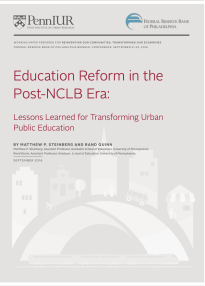Key Message
Effective education reform in urban public schools requires a multifaceted approach that incorporates evidence-based policies and practices. Key strategies include investing in high-quality early childhood education, implementing comprehensive teacher human capital policies, using rigorous accountability and assessment systems, and embracing market-based reforms such as school choice. By focusing on empirical evidence and rigorous analysis, policymakers and urban school leaders can create and sustain educational environments that support the academic success and social mobility of all students, particularly those from economically disadvantaged backgrounds.


